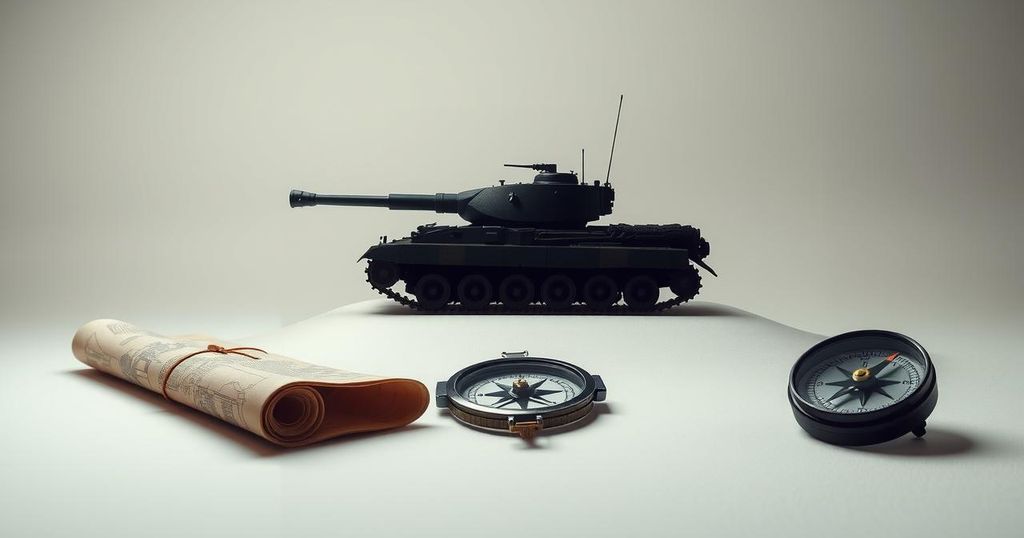World news
ASIA, DEFENCE, ENERGY INFRASTRUCTURE, EUROPE, EUROPE/ASIA, KOREA, NORTH, KURSK, KY, KYIV, MILITARY, MISSILE ATTACK, MOSCOW, NEW YORK TIMES, NEWSWEEK, NORTH KOREA, OLE, OLEKSANDR KINDRATENKO, PYONGYANG, RUSSIA, SUDZHA, U. S, UKRAINE, UKRAINIAN SPECIAL OPERATIONS FORCES, VLADIMIR PUTIN, VOLODYMYR ZELENSKY, WAR
Oliver Grayson
0 Comments
The Disappearing Act of North Korean Forces in the Ukraine-Russia Conflict
North Korean soldiers supporting Russian troops in Ukraine have largely disappeared from the battlefield following significant casualties. Despite initial reports of approximately 12,000 deployed, estimates suggest that about half have been injured or killed. The effectiveness of these troops remains debated, with indications of poor combat experience but high motivation. Their future involvement in the conflict and potential returns for new strategies are still under consideration.
After significant attention surrounding North Koreans aiding Russian troops near Ukraine, their presence has noticeably diminished. Colonel Oleksandr Kindratenko from Ukraine’s Special Operations Forces noted a three-week absence since North Korean fighters were last detected during Russian offensives in Kursk. Despite initial expectations of around 12,000 North Korean soldiers deployed, estimates suggest nearly half have been killed or injured, though these figures remain unverified.
Reports about the effectiveness of North Korean troops are conflicting. While they originate from a militarized society, their lack of combat experience has led some to label them as “cannon fodder.” However, some Ukrainian sources described them as well-trained, disciplined, and proficient with weapons. Intelligence suggests that North Korea’s elite forces were sent at the urging of Kim Jong Un, with the soldiers reportedly engaged in offensive assaults suffering high casualty rates.
Colonel Kindratenko indicated that the North Koreans lack experience in modern drone warfare, but they exhibit good mobility, although they sometimes operate without helmets to enhance their speed during assaults. Ukraine captured at least two North Korean prisoners of war (POWs), with one soldier expressing a desire to remain in Ukraine, while the other sought to return home. Ukrainian forces provided medical aid to the first POW extracted under perilous conditions and heavy Russian artillery fire.
The North Korean forces have faced substantial attrition, attributed to poorly planned frontal assaults. They often attack along familiar routes despite suffering previous casualties, resulting in numerous losses in the process. Reports indicate that Pyongyang’s troops primarily carry munitions and lack adequate supplies, rendering them ill-prepared for prolonged combat.
Analyses of recovered North Korean equipment show that they are typically better armed than Russian soldiers, possessing modern variants of standard Russian firearms, such as the AK-12 assault rifle. However, Moscow and Pyongyang have refrained from confirming the presence of North Korean troops or acknowledging the casualties they have sustained.
The future role of North Korean soldiers in the conflict remains uncertain. Ukrainian President Zelensky hinted at the possibility of more POWs originating from North Korea, and analysts suggest that the North Korean troops may return to active combat following further training or strategized assaults.
Conducted by Ellie Cook, a defense reporter for Newsweek, this article highlights the evolving involvement of North Korean forces in the ongoing military conflict in Ukraine and their impacts on the tactical landscape of the region.
The article discusses the involvement of North Korean soldiers in the ongoing conflict in Ukraine, particularly their support for Russian military operations. The situation is marked by the mysterious reduction of North Korean combatants in the field and the challenges they have faced, including casualties and issues with combat readiness. This article relies on insights from Ukrainian military officials, focusing on the implications of North Korean military assistance for the conflict’s dynamics.
In conclusion, the engagement of North Korean troops in the Ukraine conflict reflects both their potential effectiveness and the complexities they face on the battlefield. With high casualty rates and a lack of essential combat experience, these soldiers have become part of a precarious strategy for Russia. The future of North Korean forces in Ukraine remains uncertain, with calls for reinforcements and training expected to influence their operational capabilities moving forward.
Original Source: www.newsweek.com




Post Comment